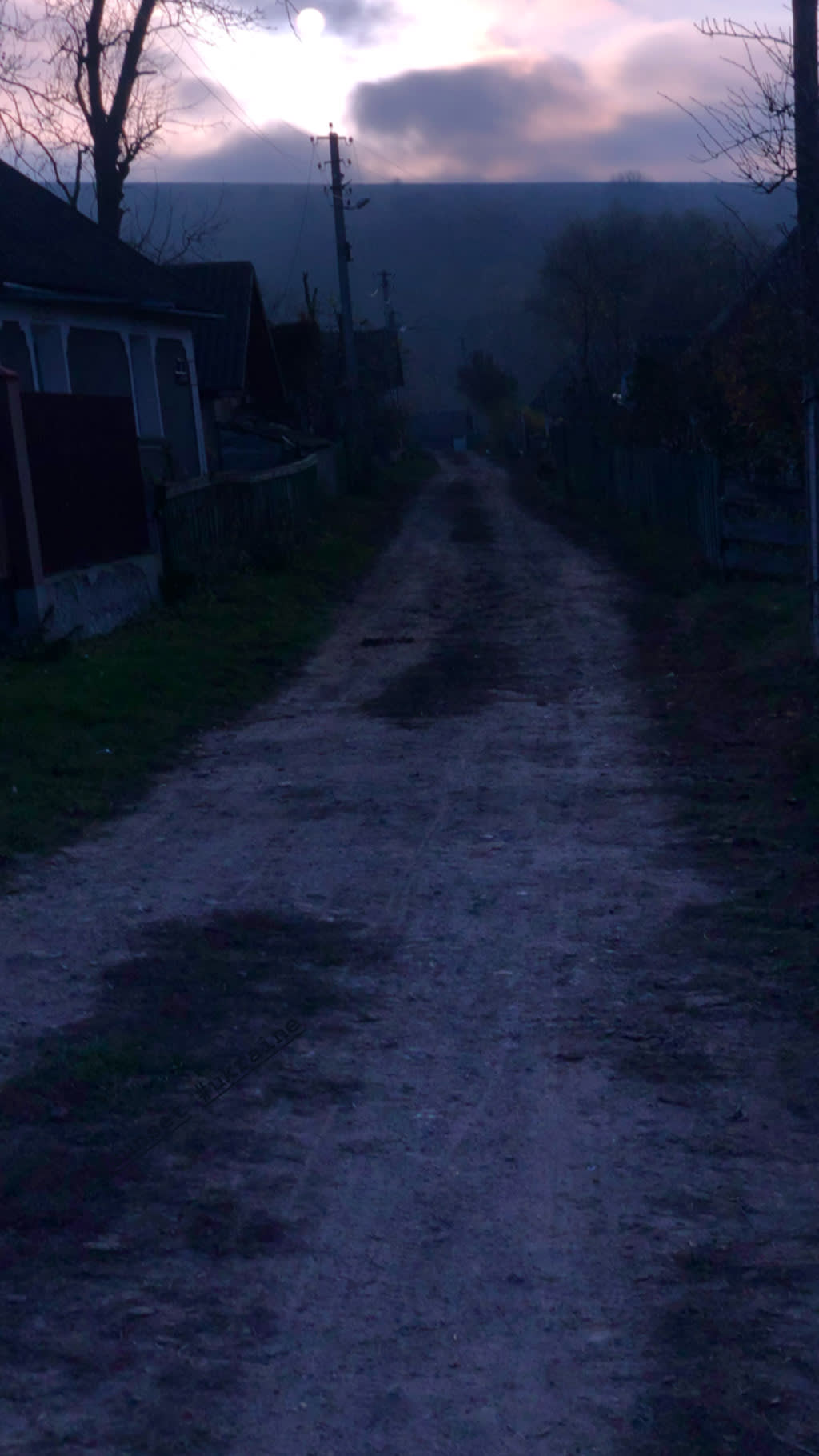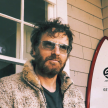KUPYN, RUSSIAN EMPIRE, 1905
A story from Kyiv. A poem from a Ukrainian shtetl.

One cold grey day, I visited the Ukrainian village where my grandfather was born. No one in the family had known about it until I found myself in Ukraine to scout for a movie shoot, and one genealogy-obsessed uncle started emailing me his family research.
The town of Kupyn was barely on a map, and I traveled 12 hours on a rickety night train from Kyiv to the nearest small city, Kam'yanets'-Podil's'kyi. After an awkward morning struggling to explain my mission to a bartender, using Google Translate, a stranger offered to drive me two hours to the village of Kupyn.
Without cell service in the countryside, we couldn't communicate, so we bounced in silence on rickety sedan axles.
I wondered what the village would tell me. I was left to wander in a town that was, at least on this autumn day, devoid of humans. I met geese, and turkeys, and a few goats who also poked around the lanes, wondering why they were there. There was no sign of my grandfather.
I have a habit of swimming in blue spots on a map, wherever I find them. So I when I found a creek leading to a pond in the north of the village, I swam naked in the frigid water. On the shore, I powered on a portable speaker and played a song by my brother Ethan, for the water to hear.
Out of nowhere, I began to weep.
I don’t cry easily. Normally I'm the type who needs, I don't know, Cryagra. But I found myself crying there. I didn't know why. I said to the water: I am here.
A few hours later, back in Kam'yanets'-Podil's'kyi, my cell phone service popped back on. A barrage of text messages pinged at me, from a friend in Kyiv who had taken it upon herself to research the village for me, while I was on my journey. She told me that in the village I’d just visited, there was a creek in the north where all of the Jews - and the Ukrainians who were married to them - had been shot. In one decade by Russians. In another by Germans. This was where I'd swam and wept.
Land has a memory. Water has memory.
A few short months ago, at a screening of a short film of mine in the city of Kyiv, I told an audience about this journey. We were playing my film in a beautiful decaying opera house that was now an art center, and I was well-liquored-up by my Ukrainian and Belarusian friends, as well as by the film students who filled the theater. An old man in the audience - an actor in a local troupe for senior citizens, it turned out - stood up to say that he could be my relative. He was a secret Jew, from the same land as my grandfather.
We spoke of love, of family, of escape, of survival. And I shared a poem I wrote for my grandfather Sam, whom I did not know.
Maybe I do know his spirit, from the echoes in the land where his family lived and died. And maybe in that water, I felt his longing for freedom. I feel it again today, knowing that 100 friends of mine, who shared film and poetry with me in that peaceful opera house, are now caught in the wheels of war, terror, destruction, death, and dislocation. I speak to the ones I can reach, and pray for the ones I can't.
.
KUPYN, RUSSIAN EMPIRE, 1905. A poem.
.
The boy bathes by the creek
dreaming of faraway girls.
.
Goats peek over the bushes,
horns first,
and then scatter.
Sweat tastes good to him—
lip sweat—
work sweat —
America sweat.
But he is not American.
He is not Russian,
not Belarusian.
Not Ukrainian,
not Polish.
He is all and none.
.
The goats, his last friends, are long gone.
The stiff wool uniforms of the Cossacks look sharp.
They take this 12-year-old man
—he is a man—
and laughing, lift him,
throw him to the water.
Now the taste is saltier,
sweeter.
Blood and springtime.
They are only playing with an animal,
practicing hockey with batons hitting a
puck, a face, softer than a puck.
.
Later my grandfather stands,
spits,
returns to father and mother,
says
I am not like you,
will not live like you,
will not die like you.
There is gold in the streets of New York,
or maybe Cleveland.
About the Creator
Ari Gold
Filmmaker, writer, drummer. Guinness World Record holder for air-drumming.
Poems published in Tablet Magazine: arigoldfilms.com/poems
Watch my movies on Amazon or at AriGoldFilms.com.
Follow on IG, Twitter: @AriGold
Drum podcast: HotSticks.fm
Reader insights
Outstanding
Excellent work. Looking forward to reading more!
Top insights
Excellent storytelling
Original narrative & well developed characters
Heartfelt and relatable
The story invoked strong personal emotions
Expert insights and opinions
Arguments were carefully researched and presented
Compelling and original writing
Creative use of language & vocab
Eye opening
Niche topic & fresh perspectives
Easy to read and follow
Well-structured & engaging content
On-point and relevant
Writing reflected the title & theme







Comments
There are no comments for this story
Be the first to respond and start the conversation.